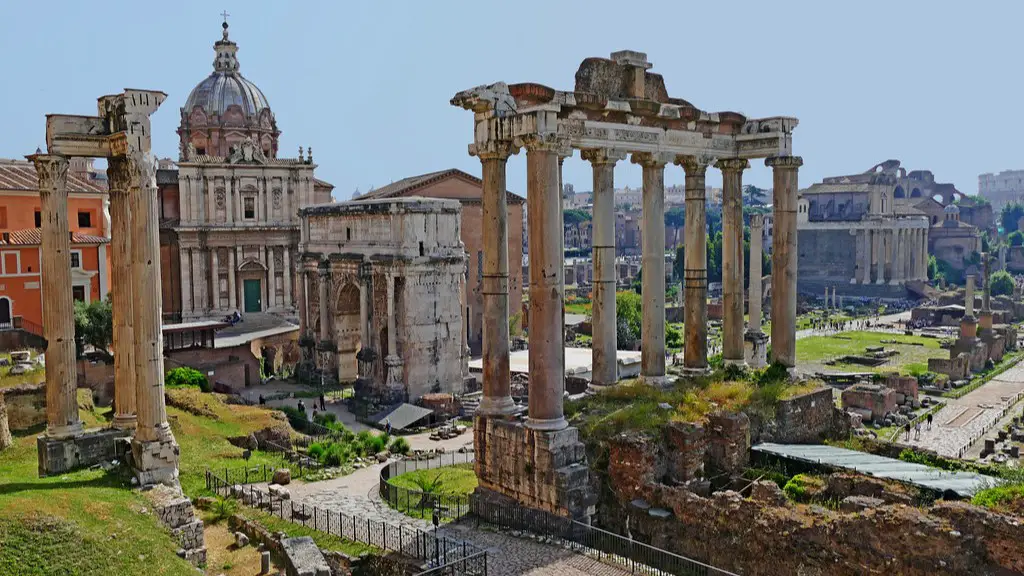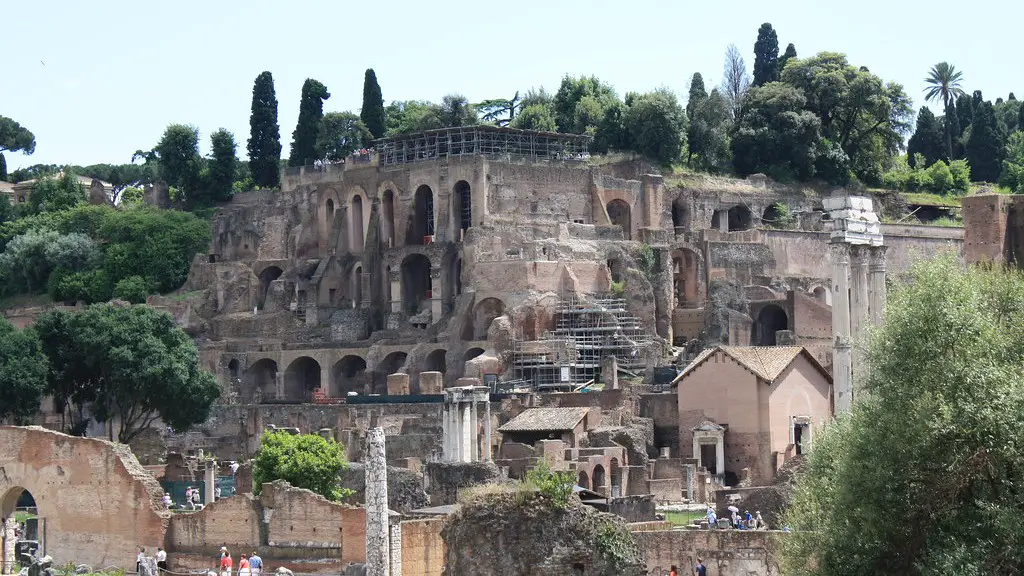The Middle Ages
The Middle Ages are the period in European history after the fall of the Roman Empire, extending all the way to the beginning of the Renaissance. This is a period of transition, marked by the decline of the classical civilizations of Rome, Greece and the Near East, and the rise of Europe. The period is largely defined by the emergence of the feudal system, in which local lords maintained control over their vassals, who in turn provided military service and agricultural labor to their lord. This resulted in a largely agrarian economy, as most of the population lived in villages and farmed the land. In addition, the period is known for the growth of Christianity, and the expansion of Christian Europe into the Middle East and the Mediterranean world.
This period was marked by great political instability, as various factions sought to gain power, leading to a number of wars and conflicts. In addition, the period was plagued by famine and disease, primarily due to the increasing population of Europe. This was also a period in which cities and towns began to develop and flourish, and in which trade and commerce increased. Finally, this period was also the beginning of the rise of the nation-state, with Europe gradually becoming more politically unified.
The Renaissance
The Renaissance is the period in European history which followed the Middle Ages, and lasted from the 15th to the 18th centuries. This was a time of great artistic, intellectual and cultural change, as the ideas of the ancient Greeks and Romans reached the European continent, and a new synthesis of knowledge, art, philosophy and science began to bloom. This period saw the development of a number of distinct artistic styles, including the Italian Renaissance of the 15th century, the Dutch and Flemish Renaissance of the 16th century, and the Northern Renaissance of the 17th century.
The period also saw a great flourishing of learning and scholarship, as universities and academies were established, and books and manuscripts began to be widely printed and published. The period was marked by a great enthusiasm for exploration and discovery, as advances in navigation and shipbuilding made it possible for Europeans to travel to the New World and to the Far East. Finally, this period saw the rise of powerful monarchs such as Henry VIII of England, Louis XIV of France and Philip II of Spain.
The Age of Exploration
The Age of Exploration is a period in European history which began in the 15th century and lasted until the 17th century. This was a time of great technological advancements, especially in navigation and shipbuilding, which made it possible for Europeans to travel and explore the world beyond their continent. This led to the discovery of vast new lands in the Americas, Africa, and the Far East, which in turn opened up opportunities for increased trade and commerce.
This period was also marked by a great number of scientific discoveries, such as Copernicus’s heliocentric theory of the universe and Galileo’s discovery of the four moons of Jupiter. This period was also marked by a great surge in colonialism, as European powers raced to claim new lands and resources. Finally, this period was characterized by intense religious conflict, as the Protestant Reformation began and the Catholic Church sought to maintain its influence in Europe.
The Age of Enlightenment
The Age of Enlightenment is the period in European history which extended from the late 17th to the mid-18th centuries. This was a time when the ideals of rationalism, liberalism, and secularism began to take hold in European society. This period was characterized by a criticism of traditional beliefs, and by the rise of scientific and philosophical inquiry.
The period was marked by a surge in the publishing of books and pamphlets, as well as the growth of the printed page. This period saw great advances in medicine, chemistry, and physics, as well as the development of the modern economic system of capitalism. In politics, the period saw the emergence of the nation-state as a primary form of governance, as well as the beginnings of the modern system of international law. Finally, this period saw the rise of powerful absolute monarchs such as Frederick the Great of Prussia and Catherine the Great of Russia.
The Industrial Revolution
The Industrial Revolution is the period in European history which began in the mid-18th century, and continued until the mid-19th century. This was a period of dramatic change, as advances in technology and the development of mechanization and automation revolutionized the production of goods and services. This period saw great advances in transportation, such as the construction of canals, roads and railroads, which dramatically increased the speed of goods and ideas. This period also saw great advances in industry, as factories began to be built, and new factories and production methods emerged.
This period also saw a dramatic increase in the population of Europe, as advancements in medicine, nutrition, and public health led to a significant increase in life expectancies. In addition, the period saw the emergence of a new class of people, the urban working class, which was largely responsible for the development of modern labor unions. Finally, this period saw the emergence of a new form of government, the nation-state, which saw a dramatic increase in its powers as the traditional monarchies of Europe were replaced by elected governments.
The Modern Age
The Modern Age is a period in European history which began in the mid-19th century, and continues to this day. This is a period of great technological and cultural change, marked by industrialization, the rise of global markets and cultures, and the development of powerful nation-states. This period saw the rise of powerful nation-states, as the traditional monarchies of Europe were replaced by newly formed governments. This period also saw a tremendous growth in democracy and rights for citizens, as universal suffrage and civil rights movements began to take hold.
This period also saw great advances in science, technology, and medicine. This period saw the development of the modern electric grid, the telecommunications industry, the development of computers and the Internet, and advances in medicine and healthcare. In addition, this period also saw a dramatic increase in international commerce and trade, as global markets developed and expanded. Finally, this period also saw a tremendous cultural change, as modern forms of entertainment such as cinema, radio, and television began to emerge.
The Nuclear Age
The Nuclear Age is a period in European history which began in the mid-20th century with the development of nuclear weapons. This period saw the emergence of a new kind of warfare, in which the power and destructive capability of these weapons made them the ultimate deterrent to war. This period also saw a dramatic increase in the power of nation-states, as the use of nuclear weapons made it possible for them to quickly disrupt or destroy any adversary.
This period also saw a great shift in the balance of power, as the emergence of nuclear weapons prompted members of the United Nations to form alliances such as the North Atlantic Treaty Organization (NATO). In addition, this period also saw the continued growth of international trade, as newly industrialized nations began to emerge as major economic powers. Finally, this period saw a great increase in the amount of scientific research and development, as the space race and the development of computers and the internet began to accelerate.

